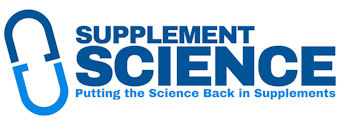If you’re asking ‘what is glutamine’ you may want to listen up because it is an important supplement to have on your radar. For building muscles and enhancing protein synthesis, glutamine is one of the most significant amino acids. Amino acids are the building blocks of protein, and they play an important role in structuring and promoting cell, muscle and tissue growth. Amino acids also transport essential nutrients throughout the body, and when it comes to healing injuries or repairing tissue, amino acids are vital.
Here’s our top 5 best glutamine products
Glutamine is the amino acid that is most abundant in muscle tissue, and it constitutes over 61% of skeletal muscle. Because it is comprised of 19% nitrogen, glutamine also plays a major role in transporting nitrogen to muscle cells. Glutamine is also sometimes called L-Glutamine in dietary supplements, where the L stands for levo (left). There is also D-Glutamine for dextro (right), but L-Glutamine is much more commonly used throughout the body.
Check out – University of Maryland Medical Center
Glutamine Benefits
Glutamine has several benefits, which is why athletes often take glutamine supplements. Glutamine promotes muscle building and protein synthesis, supports cell hydration, acts as an anti-catabolic agent, accelerates metabolism, and boosts the immune system. These many glutamine benefits make it an excellent supplement not only for bodybuilders and fans of healthy living but also for those with serious illnesses and even cancer patients.
Glutamine helps build muscle and synthesizes protein by transporting nitrogen throughout the body. A positive nitrogen balance, where nitrogen intake exceeds the body’s nitrogen output, is essential for muscle growth. Higher levels of positive nitrogen balance promote faster recovery from a workout.
Cell hydration is another important factor in workout recovery and muscle repair. Glutamine assists in the cell hydration, which increases cell volume and decreases the amount of time it takes the body to recover from strenuous activity.
Glutamine also acts as an anti-catabolic agent. Catabolism is the breakdown of complex molecules, and during exercise, the dehydrating cells release catabolic hormones that threaten to break down muscle tissue. As an anti-catabolic agent, glutamine prevents the breakdown of muscle tissue.
For accelerating metabolism, glutamine plays a key role by increasing levels of Human Growth Hormone (HGH), which in turn enables the metabolism of fats and the processing of foods to be more efficient. Higher levels of HGH also enhance the immune system.
Per a study published by the National Institute of Health, glutamine aids in faster recovery from exercise and diminished levels of muscle soreness. The study also suggests that the extent of muscle recovery may be more effective in men than women.
What Causes Glutamine Depletion?
Unfortunately, exercise causes rapid glutamine depletion as the body uses up glutamine to maintain the hydration state of the muscle cells. Exercise can cause the body to deplete glutamine levels by as much as 50%, and even after exercise, the body continues to lower glutamine levels. The harder one exercises, the more glutamine levels drop.
In addition to exercise, glutamine levels can be depleted by any amount of stress on the body, including the stress caused by a common cold or any illness.
The Dangers of Low Glutamine Levels
Low levels of glutamine can be dangerous for anyone, fitness and non-fitness people alike. Bodybuilders, athletes and health trainers all dread having low glutamine levels because such a condition can lead to muscle loss and prolong the muscle repair process. In addition, low glutamine levels can lower the immune system and make recovery more difficult.
Foods with Glutamine
Glutamine is available as a supplement, but for those who prefer to consume their nutrients whenever possible, there are several foods that naturally contain high levels of glutamine. For example, spinach, cabbage, beans and legumes, animal proteins, and dairy are all foods with glutamine. Heat can destroy glutamine in vegetables, so when eating glutamine-rich vegetables, make sure to eat them raw or in a juice.
Looks for some recommendations?
Transparent Labs Glutamine & BCAA


